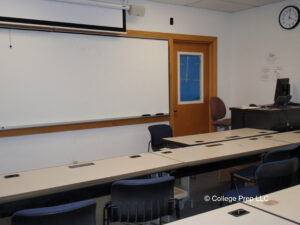Shouldn’t They Have Learned This In School?
 Most high school students aren’t accustomed to taking tests with hard questions, questions they aren’t supposed to get right. Classroom tests, final exams, and state level assessments are written so that students who have been to class, done the work, studied and learned the material should be able to answer all the questions correctly. School has not prepared them for the difficult questions on the SAT.
The timing and duration of the SAT are also unfamiliar. The SAT is currently made up of ten timed sections, which add up to a three hour and fifty-five minute exam. Few students have experience with timed tests and even fewer have ever taken one exam requiring full-focus for four hours. Imagine training to run a weekend 5K race only to find the course has been extended to a full length marathon.
Add in the fact that the SAT scoring method is unfamiliar. The SAT awards a point for every correct answer and subtracts a fourth of a point for every incorrect answer to calculate a raw score. Only students scoring 650 or above per section should answer everything. All other students would improve their scores by leaving the hardest questions blank, thereby avoiding the loss of points from wrong answers. But from years of teaching school, I know we encourage students to answer every question on a major test and make guesses when they are unsure. This strategy that serves students so well in school backfires for most SAT test takers.
Students should be learning vocabulary, critical reading, algebra, geometry, analysis, grammar, usage, and effective communication in school; however, knowledge in the subject areas is not enough to make a high score on the SAT.
]]>
Most high school students aren’t accustomed to taking tests with hard questions, questions they aren’t supposed to get right. Classroom tests, final exams, and state level assessments are written so that students who have been to class, done the work, studied and learned the material should be able to answer all the questions correctly. School has not prepared them for the difficult questions on the SAT.
The timing and duration of the SAT are also unfamiliar. The SAT is currently made up of ten timed sections, which add up to a three hour and fifty-five minute exam. Few students have experience with timed tests and even fewer have ever taken one exam requiring full-focus for four hours. Imagine training to run a weekend 5K race only to find the course has been extended to a full length marathon.
Add in the fact that the SAT scoring method is unfamiliar. The SAT awards a point for every correct answer and subtracts a fourth of a point for every incorrect answer to calculate a raw score. Only students scoring 650 or above per section should answer everything. All other students would improve their scores by leaving the hardest questions blank, thereby avoiding the loss of points from wrong answers. But from years of teaching school, I know we encourage students to answer every question on a major test and make guesses when they are unsure. This strategy that serves students so well in school backfires for most SAT test takers.
Students should be learning vocabulary, critical reading, algebra, geometry, analysis, grammar, usage, and effective communication in school; however, knowledge in the subject areas is not enough to make a high score on the SAT.
]]>
SAT Questions | College Prep Results
[…] multiple attempts at the SAT? What is a good score? What exactly is tested on the current test? Should students have learned all the test content in school? What can students do to improve their scores? Will prep books or classes actually help? How […]